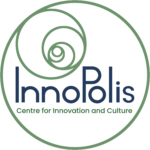Breaking Barriers: Women Leading Change

At INNOPOLIS, we recognize that women are powerful agents of transformation, innovation, and community building. Through our comprehensive programs across Europe, we focus on empowering migrant, refugee, and local women by providing them with the tools, skills, and platforms they need to thrive. Our mission is to break down barriers, challenge stereotypes, and create pathways for women to become leaders in their communities while fostering cross-cultural dialogue and sustainable development.
Our women-focused initiatives span multiple sectors, from digital innovation and cultural tourism to environmental sustainability and civic engagement. We collaborate with local organizations, cultural institutions, and EU partners to deliver impactful projects under various funding programs, ensuring that women’s voices are heard, their talents are recognized, and their contributions drive meaningful social change.
InnoPolis Gender Equality Plan (GEP)

Version 1.0 – September 2025
Approved by: President of InnoPolis – Katerina Sotiropoulou
- Publication
This Gender Equality Plan (GEP) is a formal policy document of InnoPolis, officially endorsed by top management and publicly available on the organization’s website. It represents our institutional commitment to gender equality across all activities, partnerships, and operations. - Dedicated Resources
InnoPolis has designated a Gender Equality Focal Point (GEFP) supported by a Gender Equality Task Group made up predominantly of women experts, staff, and volunteers. The team is responsible for implementing, monitoring, and updating the GEP.
- Data Collection and Monitoring
InnoPolis collects sex and gender disaggregated data on staff, volunteers, project leaders, and external collaborators. Annual reports are compiled to monitor progress against indicators related to gender balance, inclusivity in decision-making, and equitable access to opportunities.
- Training and Awareness
Mandatory gender equality and unconscious bias awareness sessions are organized annually for staff, management, and external experts. These are delivered through workshops, digital learning modules, and guest speaker series in collaboration with civil society and academic partners.
- Priority Areas & Measures
A. Work–Life Balance and Organisational Culture
- Flexible and remote working arrangements supported.
- Support for childcare considerations during events and mobilities.
- Promotion of inclusive language and safe communication culture.
B. Gender Balance in Leadership and Decision-Making
- Majority of current board members and project coordinators are women.
- Transparent nomination processes for leadership roles.
C. Gender Equality in Recruitment and Career Progression
- All vacancies use gender-inclusive language.
- Selection panels are gender-balanced.
- Commitment to equal pay for equal work.
D. Integration of Gender into Research and Project Content
- All proposals and project deliverables must assess gender relevance.
- Gender impact assessment included in quality assurance workflows.
E. Prevention of Gender-Based Violence and Harassment
- Zero-tolerance policy on sexual harassment and GBV.
- Clear internal reporting mechanism for misconduct.
- Annual safety and safeguarding reviews for field activities.
- Monitoring and Review
The GEP is reviewed annually by the Gender Equality Task Group. Progress indicators, stakeholder feedback, and evolving EU guidelines are taken into account to refine the strategy.
Document Version: 1.0
Next Review Date: September 2026
Digital Skills for Independence
Through our comprehensive digital learning programs, we empower migrant and refugee women with essential skills in food culture, sustainability, and digital safety. Our gender-responsive modules emphasize self-reliance, eco-conscious practices, and entrepreneurship, helping women build resilience and find their place in host communities.
Cultural Ambassadors and Heritage Guardians
In partnership with the ISRICM-EU project, we create inclusive cultural tourism experiences where women serve as cultural ambassadors. Our programs develop gender-sensitive heritage routes, promote social integration, and empower women to share their stories while fostering cross-border dialogue that strengthens community belonging.
Amplifying Voices Through Civic Participation
We organize inclusive debates and forums specifically designed to engage young refugee and migrant women in discussions about social justice, safety, and gender equality. These platforms amplify underrepresented voices and contribute to local policy development through youth-led monitoring and intersectional advocacy.
Environmental Leadership and Green Innovation
Our environmental programs engage women in mapping sustainable solutions and bio-waste management initiatives. This builds technical and environmental literacy while creating economic opportunities in the circular economy and green innovation sectors, positioning women as environmental leaders in their communities.
Challenging Stereotypes, Building Equality
We co-create powerful awareness campaigns with women participants to challenge gender stereotypes and promote equality. Using digital platforms and authentic storytelling, these campaigns raise visibility of refugee and migrant women while reaching diverse audiences across generations.
Building Networks Across Borders
Through projects like SILVER WELLBEING, DIGIZENSHIP, FUTURE-ART, and CULTURE FOR WATERFRONTS, we’ve established comprehensive support networks spanning vocational training, digital citizenship, anti-trafficking awareness, and cultural dialogue. Our approach consistently prioritizes gender-responsive integration and community-led sustainable development.
Infastracture
Digital Innovation Workspace
A secure, cloud-based infrastructure for collaborative project management, data sharing, and coordination.
Multimedia Production Suite
Equipment and software for creating videos, podcasts, visual materials, and e-learning content.
Mobile Engagement Kits
Portable laptops, tablets, and projectors used for on-site workshops, training, and community engagement.
E-learning Development Tools
Authoring tools for creating interactive online training modules, quizzes, and inclusive learning content.
UX/UI Prototyping Software
Platforms (e.g. Figma, Adobe XD) for designing and testing user interfaces and digital platform prototypes.
Digital Campaign & Analytics Tools
Licensed tools for managing digital campaigns, social media outreach, and measuring user engagement.
